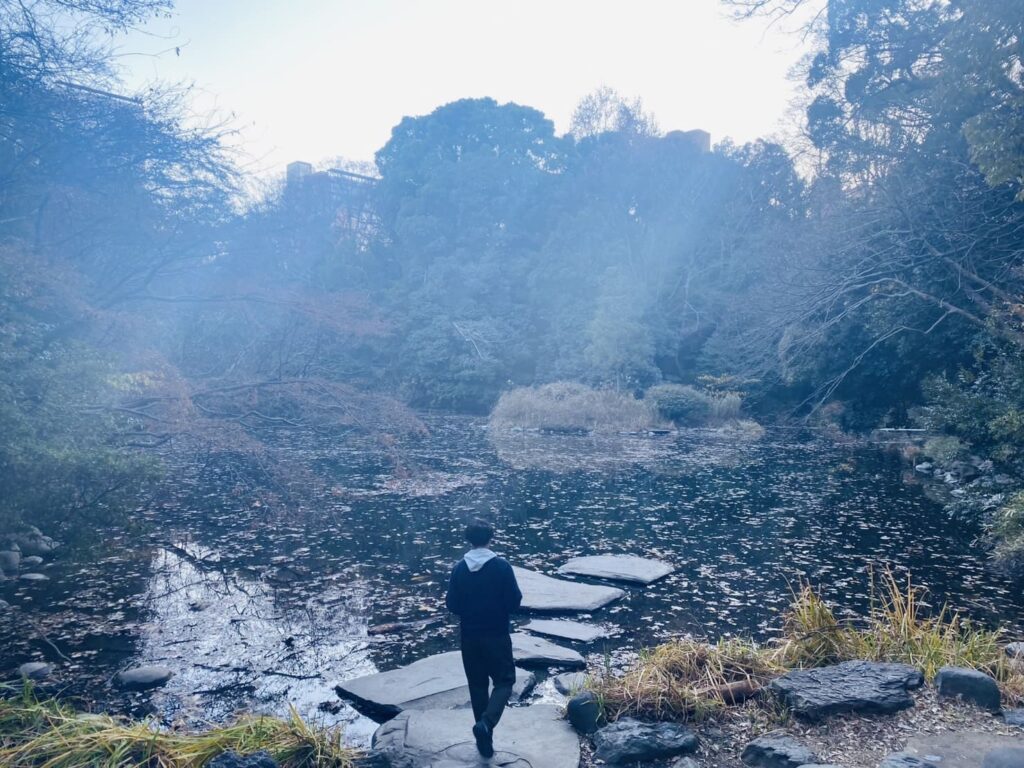It’s been quite some time since my last post about Yasuke.
As we step into 2025, I’d like to revisit my discussions with Mihoko Oka from the past year, particularly focusing on her interpretations of foreign languages.
This post is the English version of an article I originally published in Japanese on Note.

I decided to write summary articles like this on Note since X articles often lack visibility in search results.
With the upcoming release of Assassin’s Creed: Shadows, I imagine more people are taking an interest in this topic again.
To help those people better understand the current state of the Yasuke debate, I plan to continue publishing summaries like this one.
The inspiration for this article comes from a growing concern I had late last year—namely, that Oka might be trying to revise history.
私も『日葡辞書』の用例は示しましたが、アンチの人々はまったく受け容れませんでしたね(笑)しかし彼等は権威主義的でもあるので、私以外の研究者の学術論文で示されれば、納得せざるを得ないでしょうな。
Translation:
I’ve presented examples from the Nippo Jisho (Portuguese-Japanese Dictionary), but the “antis” haven’t accepted them at all, haha. However, they tend to be authoritarian, so if the evidence were presented in an academic paper by another researcher, they’d have no choice but to accept it.
In response, I wrote the following:
正しくは「アンチが受け入れない」ではなく「岡先生がなぜその訳語にしたのかを答えない」です。今後も歴史修正を続けるつもりなんでしょうか。がっかりです。
Translation:
To be precise, it’s not that the “antis” won’t accept it; rather, it’s that you haven’t explained why you chose that particular translation. Do you intend to continue revising history? I’m disappointed.
Shortly after, she blocked me (second time).
【悲報】また、キモおぢになってしまった…
Translation:
https://x.com/japanese_naoto/status/1871798518572343520
[Sad News] I’ve turned into a creepy old guy again…
I said like this because she initially said, “I’ll keep blocking creepy old guys one after another.”
Around the same time, she also made this statement:
普通に丁寧に史料を読めば、平均以上に立派な弥助像ができてしまうのが(信長が即決採用する以上当前ですが)、気に入らないのでしょう。翻訳に関しては、昔の著名研究者のものが間違っているはずはない、という一般の固定観念の強さは興味深かったです。
Translation:
If one carefully reads the historical records, they’d naturally arrive at a highly respectable image of Yasuke (which makes sense since Nobunaga hired him immediately), but I suppose that’s something they can’t stand. Regarding translations, it’s interesting how strongly people cling to the idea that translations by famous scholars of the past couldn’t possibly be wrong.
As I’ll elaborate later, it’s only because Oka does not carefully read historical sources that such an image emerges.
Moreover, her proposed new translations are less appropriate than existing ones both grammatically and contextually.
Why does she persist in disseminating illogical claims without addressing valid critiques?
Does she wish to spread an idealized version of Yasuke’s story, despite knowing her claims are flawed?
岡氏はXを「道端の立ち話」「遊び場」と定義しているので、、、ガチのツッコミに対応する義務も仁義もなく、わいとキャッキャと楽しもうとしない奴は排除するぞということでしょう。
実質的には一方通行のプロパガンダ装置として使われているような。Translation:
Oka defines X as “idle chatter on the roadside” or a “playground,” meaning there would be no obligation or moral duty to respond to serious critiques. Anyone who doesn’t want to play along would get excluded. It seems to be used effectively as a one-way propaganda tool.
If such arbitrary interpretations are allowed to continue under the title of University of Tokyo Associate Professor, the task of correcting them will be incredibly tedious.
With this in mind, I’ve compiled a summary of the ways Oka has attempted to rewrite history. Consider this article an index to reference if she tries to revise history again in the future, since I’ve been blocked.
- Mihoko Oka’s 10 Unbelievable and Bizarre Theories!
- 1. [Chinese] Misinterpreting the Term “黒鬼 (Black Ghost, a Derogatory Term)” as Having a Positive Meaning
- 2. [Portuguese] The Strange Interpretation of algumas manhas boas
- 3. [Portuguese] The Suspicion That Oka Did Not Check the Dictionary Herself
- 4. [Portuguese] The Misinterpretation of he grande, & excessivo o desejo
- 5. [Portuguese] Contradictory Rebuttal About [ , &] Separating Sentences
- 6. [Portuguese] Oka’s Insistence That [ , &] Must Separate Sentences
- 7. [Portuguese & English] Does Oka Think a Sentence Can Exist Without a Verb?
- 8. [English] The Misuse of Extraordinary as a Translation for “More Than Average”
- 9. [Classical Japanese] The Interpretation of 器量なり
- 10. [Classical Chinese] The Buddha as a Black Man Theory
- Thoughts on Mihoko Oka
Mihoko Oka’s 10 Unbelievable and Bizarre Theories!
1. [Chinese] Misinterpreting the Term “黒鬼 (Black Ghost, a Derogatory Term)” as Having a Positive Meaning
- Oka’s Claim:
In Chinese historical records, African people are referred to as “黒鬼 (black ghosts).” This implies that Nobunaga not only valued Yasuke for his practical physical strength, but also likely kept Yasuke by his side as part of an image strategy to convey, “Look how strong the individuals I command are” - Naoto’s Counterpoint:
The term “鬼” in Chinese does not mean “strong.” Instead, “黒鬼 (black ghost)” is a purely derogatory term - Outcome:
Oka argued, “We can’t definitively say that the Ming dynasty in China didn’t have the same concept of ‘鬼’ as in Japan,” thus resorting to the fallacy of proving a negative
This was the starting point of my feud with Oka. Initially, my X account focused on posting in English, but I couldn’t overlook Oka’s misuse of a Chinese derogatory term during her interview with Cyzo. I decided to advise her in Japanese.
「黒鬼」は中国語で「[N word]」の意味です。
「鬼」という字は中国では幽霊とか悪魔といった意味に近く、「日◯鬼子」のように侮蔑的な意味合いで使われる言葉です。実体的な「屈強さ」を意味するものではないです。
岡先生の発言だったのかどうか早めに確認した方がいい内容かと思われます。
Translation:
The term “黒鬼” in Chinese carries the same connotation as the N-word in English.The character “鬼” in Chinese is closer to “ghost” or “demon” and is often used pejoratively, as in “日◯鬼子 (Japanese devils).” It does not denote strength in any tangible sense.
You might want to verify whether this statement actually came from you as soon as possible.
https://x.com/japanese_naoto/status/1816159878853058946
Although Oka deleted many of her posts at the time, I’ve summarized the controversy below:
岡美穂子先生の「中国の明代にも日本の『鬼』のイメージがあった」という主張への反論です。
反論のために書き始めたのですが、「鬼」のイメージ像が各地域・時代・宗教で移り変わっていくのが単純に面白くて、いろいろと調べていたら長くなったので記事化しました。
弥助のイメージが海外でのみ変わっていった過程をもう一度眺めたかのような気分です。
Translation:
This is the rebuttal against Mihoko Oka’s claim that the Ming dynasty in China shared the same concept of “鬼” as Japan.While my initial goal was simply to write a rebuttal, I became intrigued by how the image of “鬼” has evolved across regions, time periods, and religions. The topic was so engaging that my research grew long, so I turned it into an article.
It felt like revisiting how Yasuke’s image transformed outside of Japan.
神のように出て鬼のように没することで有名な岡美穂子先生のポストですが、どうやら私との会話は鬼と消えてしまったようです。
時の旅人さん(@atime1000)がスクリーンショットを残してくれていたので、会話の内容をこちらで供養させていただきます。
R.I.P.
Translation:
Mihoko Oka’s post is known for appearing like a god and disappearing like a ghost, and our conversation seems to have disappeared into thin air like a ghost.Fortunately, Toki no Tabibito-san (@atime1000) preserved screenshots of our exchange, so I’d like to lay them to rest here.
R.I.P.
https://x.com/japanese_naoto/status/1825640216457261355
I used the Chinese-origin idiom “神出鬼没” (appearing like a god, disappearing like a ghost) as a wordplay to suggest the ancient Chinese meaning of “鬼” refers to “ghosts.”
While many modern Japanese associate “鬼” with something tangible, the original Chinese meaning of “ghost” is still evident in modern Japanese usage.
Ultimately, Oka failed to provide evidence for her claims and relied on the fallacy of proving a negative. This essentially amounted to giving up.
「黒鬼」とアフリカ系の人を称した時に、その「鬼」に侮蔑の意味があることには同意します。ただ、それもまた明代、清代の文化・宗教的理解から派生する他のイメージが重なっていなかった、とは断定できないと思います。
Translation:
https://x.com/mei_gang30266/status/1827004413988462995
I agree that when African people were referred to as “黒鬼 (black ghosts,)” the term “鬼” had a derogatory meaning. However, it would be not possible to definitively assert that other cultural or religious interpretations from the Ming and Qing eras didn’t overlap with that meaning.
Aside from Oka, many others have also arbitrarily interpreted the Chinese term 黒鬼 as having a positive meaning without providing any evidence, purely based on their personal feelings. As a result, I faced a huge amount of backlash (which made no sense at all).
Even though others who actually understand Chinese have pointed out like these below, I was baffled by the sheer number of authoritarians who blindly trusted the titles of a University of Tokyo associate professor and a Buddhist scholar. Neither of whom actually know Chinese.
1.に関して言うとその通りだと思う。
例えば明代成立の『水滸伝』の百八魔星の渾名には「赤髪鬼」、「操刀鬼」と「鬼瞼児」があるがこれは「恐ろしい」の意で肯定的に日本の鬼小島弥太郎の「鬼」の様な「鬼神が如き勇猛な戦士」の意味は無い。他にも「母夜叉」などがあるがやはり鬼婆のイメージであるTranslation:
https://x.com/amane_murakumo/status/1824306777963499696
Regarding point 1, I believe that is correct.
For example, in the nicknames of the 108 Demon Stars from Water Margin, compiled during the Ming Dynasty, terms like 赤髪鬼 (Red-Haired Demon), 操刀鬼 (Knife-Wielding Demon), and 鬼瞼児 (Demon-Eyed Kid) convey the idea of being “terrifying.” However, they do not carry the positive connotation of “鬼” as seen in Japan, such as in the case of 鬼小島弥太郎 (Oni Kojima Yatarō), where “鬼” symbolizes a warrior as brave and fierce as a demon god. Other examples, such as “母夜叉” (Mother-Demon), also evoke the image of a wicked or terrifying crone, further illustrating the lack of a “heroic warrior” nuance.
2.同じ水滸伝の同じ文脈で言うと強さの例えでよく使われているのは虎や豹、龍の方が圧倒的に多く、仏教や道教の神、閻羅・哪吒なども散見し、或いは〇〇将などの呼称が多い。明確に鬼が褒め言葉として用いられている形跡は日本語に比べると無いに等しい。
Translation:
https://x.com/amane_murakumo/status/1824306780773683585
2. In the same context of Water Margin, comparisons to strength are overwhelmingly made using terms like “tiger,” “leopard,” or “dragon.” References to deities from Buddhism or Daoism, such as 閻羅 (Yama) or 哪吒 (Nezha), are also occasionally seen, along with titles like “General 〇〇” (〇〇将). However, there is virtually no evidence of “鬼” being used as a compliment in the same way it is in Japanese.
2. [Portuguese] The Strange Interpretation of algumas manhas boas
- Oka’s Claim:
The phrase algumas manhas boas should be translated as “having excellent quality” - Naoto’s Counterpoint:
The dictionary Oka referenced provides an example with the reverse word order “boas manhas,” which does not align with the context. The existing translation, “can perform some tricks,” is more appropriate - Outcome:
Oka did not provide any counterarguments
https://sankei.com/article/20240805-2RDCMCMKMNFYFOGXMRGPCIT2NI/
原文をみた。これまでの訳本の間違いを発見。1581年10月8日付のロレンソ・メシアの書簡の弥助に言及した箇所「tinha muitas forcas & algumas manhas boas」は「非常に力があり、いくらかの芸が出来る(既存訳)」ではなく、「非常に力があり、資質に優れている」と訳すべき。Translation:
I reviewed the original text and discovered errors in previous translations. The section referring to Yasuke in the letter written by Lorenzo Mexia on October 8, 1581, “tinha muitas forcas & algumas manhas boas,” should not be translated as “had great strength and some skills (existing translation,)” but rather as “had great strength and exceptional quality.”
My rebuttals are quite lengthy, so I’ll skip translating them into English.
Despite my critique, she ignores it and continues to propagate the idealized Yasuke image, saying “If you carefully read the historical records, you naturally arrive at a highly respectable image of Yasuke.”
Her interpretation of manhas boas relied on an example with reversed word order “boas manhas”.
Moreover, she overlooked the fact that algumas (“some”) likely quantifies something countable, yet she abstractly translated it into “資質 (quality or nature)”.
Does this reflect her careful reading of historical sources?
3. [Portuguese] The Suspicion That Oka Did Not Check the Dictionary Herself
- Oka’s Claim:
I cannot tell whether the Portuguese word “manhas” is derived from the Latin “manus.” - Naoto’s Counterpoint:
The dictionary Oka cites explicitly states in the first line of the manha entry that it “seems to be derived from the Latin word manus.” Why did she say cannot tell? Did she even check the dictionary herself? - Outcome:
Oka did not respond with a counterargument.
私はラテン語・ロマンス語の言語学者ではないので、manusの派生語かは分からないのですが。「何かに、熟練、優れていること」が意味で、それが一つではないため、英語のsomeに相当するalgumasが付随しているのだと思います。多才な人であったとは言えそうです。
Translation:
https://x.com/mei_gang30266/status/1821043228742676680
I am not a linguist specializing in Latin or Romance languages, so I cannot tell whether it derives from manus. However, the meaning includes “being skilled or proficient at something,” and since it’s not limited to just one skill, “algumas,” equivalent to English “some” accompanies it. Yasuke could indeed be described as multi-talented.
I’ll skip translating my rebuttal into English.
If she publicly claims that existing translations are mistranslations, how could she overlook the very first line of the dictionary entry?
It’s worth noting that the boas manhas example Oka referenced is only one page away from the entry for manhas.
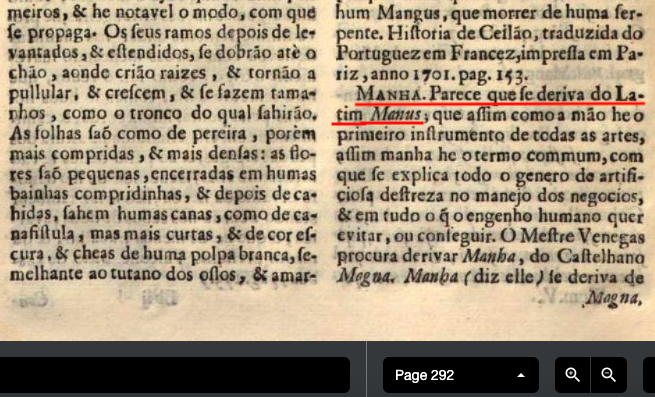
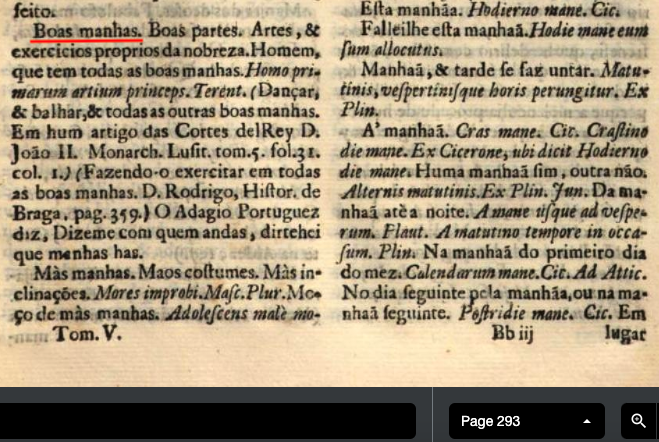
This raises the suspicion that she might have posted a dictionary image sent by another Portuguese researcher without looking it up herself.
Supplement: The Suspicion That She Threatened ChatGPT
There’s also a theory floating around that she threatened ChatGPT. It’s quite interesting, so I want you to check it out.
そういうことなら、私もChat GPTで対応します。言っておきますが、私は普段はChat GPTで古ポルトガル語を調べることは滅多にありません。
Translation:
https://x.com/mei_gang30266/status/1834595553126347238
If that’s the case, I’ll respond using ChatGPT myself. Let me tell you, I rarely use ChatGPT to research classical Portuguese.
Take note that ChatGPT’s response starts with “Yes”.
Interestingly, she could have easily denied this allegation by sharing her ChatGPT usage history, but for some reason, she didn’t.
4. [Portuguese] The Misinterpretation of he grande, & excessivo o desejo
- Oka’s Claim:
Oka claimed that “he grande (large)” describes Yasuke’s trait and that the existing translation omits this detail. - Naoto’s Counterpoint:
“He grande, & excessivo (large and excessive)” modifies “o desejo (the desire)”. The existing translation is more appropriate. - Outcome:
Oka responded with a nonsensical rebuttal, claiming that “[ , &] separates sentences.”
ブログ更新のお手伝いをしていて、既存訳の問題点をさらに色々見出す。松田毅一監訳書では、弥助の特性である「大きい」が落ちてしまっている。「いともたやすく稼ぐであろうとのことである」の後に入ってないといけないのだが。
Translation:
https://x.com/mei_gang30266/status/1837667281847177607
While helping blog updates, I found more issues with the existing translation. It omits Yasuke’s characteristic of being “large.” This detail should follow the phrase “they say one would acquire big money easily.”
I’ll skip translating my rebuttal.
Her counterargument is utterly nonsensical. It’s baffling that someone specializing in language would make such a claim.
このあたりは文法的に崩れています。しかし基本的には[ , &]で一文がそれぞれ独立しています。ですので、he(英語のis) の主語がdesejoである必然性はありません。ポルトガル語は主語が省略されるのが珍しくない言語です。機械翻訳にかけた時AIは主語を周辺に探そうとするので、そう読めたのでは?
Translation:
https://x.com/mei_gang30266/status/1838098989687963888
This part is grammatically broken. However, fundamentally, [ , &] separates each sentence independently. Therefore, there is no necessity for the subject of he (is) to be desejo (desire). In Portuguese, it’s not uncommon for the subject to be omitted. Perhaps AI misinterpreted it when looking for a subject nearby?
If it were modern English, such an interpretation would provoke significant backlash.
5. [Portuguese] Contradictory Rebuttal About [ , &] Separating Sentences
Our discussion continues:
- Oka’s Claim:
[ , &] separates sentences, so the existing translation is incorrect - Naoto’s Counterpoint:
Previously, you interpreted a different passage without separating it at [ , &]. Don’t make things up - Outcome:
Oka “Yes, yes, this is getting tiresome”
Earlier, Oka interpreted the phrase “tinha muitas forcas, & algumas manhas boas” as having a “had A and B” structure without separating the sentence at [ , &].
This interpretation aligns with the existing translation: “He had great strength and some tricks (can perform some tricks.)”
I’ll skip translating my rebuttal.
Now, however, Oka suddenly began claiming that “[ , &] separates sentences,” contradicting her earlier interpretation.
Did she really think she could fool non-experts with such an outlandish excuse?
ハイハイ、もうメンドクサイなぁ。muitas forcasで1回文が終わりでいいですよ。そのあと信長が気に入ったなんかしらの才能があって、で構造的に新しい文になってますから。Naotoさんは、そんなに研究熱心なら、何か別のテーマに打ち込んでブログとかNOTE化すればいいのでは?
Translation:
https://x.com/mei_gang30266/status/1838449671423037693
Yes, yes, this is getting tiresome. It’s okay “muitas forcas” ends one sentence, and the next sentence begins structurally as a new one, with talents Nobunaga admired. Naoto, if you’re so passionate about research, why not focus on another topic and write a blog or Note about it?
Rather than brushing this off as “this is getting tiresome,” I wish she would carefully read the sources. Isn’t that her job as a researcher?
Another user, tentaQ4, provided examples where [ , &] does not separate sentences, but Oka has not responded to this critique.
〔, &〕で区切ったら文が終わるとは、一体何を根拠に言っているのでしょうか?
… , & he o mor perseguidor, & imigo q nestas terras temos, …
… com os quaes comunica, & trata muito familiar, & intimamente.Translation:
https://x.com/tentaQ4/status/1838601136347238836
What exactly is she arguing that a sentence ends when it’s separated by [, &]?
… , & he o mor perseguidor, & imigo q nestas terras temos, …
… com os quaes comunica, & trata muito familiar, & intimamente.
6. [Portuguese] Oka’s Insistence That [ , &] Must Separate Sentences
- Oka’s Claim:
Oka asserted that “[ , &] separates sentences,” which invalidates her previous translation of “strength and quality” - Naoto’s Counterpoint:
So, you’re not changing your stance. If [ , &] truly separates sentences, then the phrase following “& excessivo o desejo” would lack a verb, making the sentence grammatically incomplete. What about this? - Outcome:
Oka did not provide a rebuttal
algumas manhas boasは後ろのelle gostava (de)の目的語です。ポルトガル語(とくに古い時代)はラテン系言語ですので、語の順番だけでS、Oを見分けることはできません。凡そOは動詞の後にきますが、この文ではalgumas manhas boas強調のため、文の最初に持ってきて、queという関係詞でつないでいます
Translation:
https://x.com/mei_gang30266/status/1838560330416558360
Algumas manhas boas is the object of elle gostava (de). In Portuguese (especially older forms), being a Romance language, the word order doesn’t solely determine the subject or object. While the object generally follows the verb, algumas manhas boas appears at the beginning here for emphasis, connected by the relative pronoun que
そもそも、最初に提示した訳は、algumas manhas boasのmanhas boasが「芸」か「資質」かの解釈に限定した議論でしたので、文構造全体は考えていませんでした。また既存訳にひきづられたことも否定しません。あらためて文全体を見直すと、こう訳すべき、という話です。
Translation:
https://x.com/mei_gang30266/status/1838563736384332153
My initial translation focused solely on whether “manhas boas” of “algumas manhas boas” meant “trick” or “quality” and didn’t consider the entire sentence structure. I also don’t deny being influenced by existing translations. Upon reviewing the entire sentence, this is how I should translate it now.
She refused to back down from her baseless claim that “[ , &] separates sentences.”
If she admitted she was wrong, she would lose the basis for her argument that the existing translation of “he grande, & excessivo o desejo” as “切望 (intense desire)” was incorrect.
To maintain her stance, she ended up revising her earlier interpretation of “tinha muitas forcas, & algumas manhas boas,” which she had originally read as “had A & B.”
Despite having condemned that the existing translation was a mistranslation, she later claimed that she had been influenced by it—an extremely weak excuse.
However, applying the same logic to the sentence in question—separating it at “[ , &]”—would result in the latter part, & excessivo o desejo ~, completely lacking a verb.
When I pointed this out, she ignored my critique. This is a textbook example of piling inconsistencies until the entire argument collapses under its own weight.
I’ve summarized this discussion in this posts.
7. [Portuguese & English] Does Oka Think a Sentence Can Exist Without a Verb?
While I hesitate to believe this, Oka’s comments raise the possibility that she genuinely thinks a sentence can consist solely of a noun phrase, with no verb.
In the past, Oka reposted an interpretation by Hasegawa Kou, who offered a nonsensical reading of an English sentence:
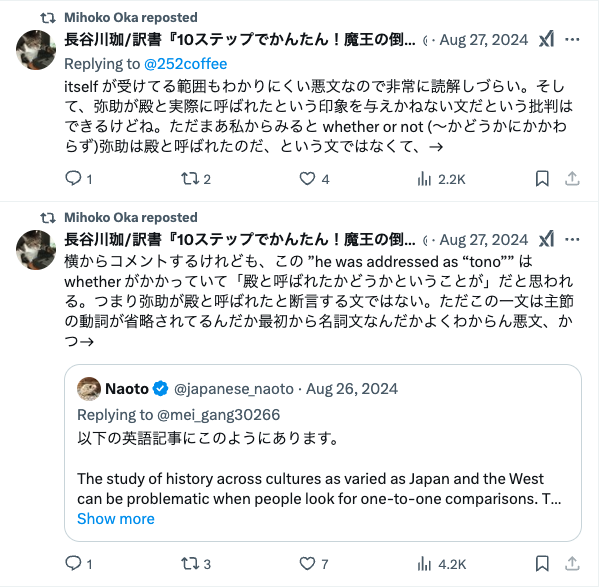
“Whether A, B, C, and D.” という、名詞節を4つ列挙しただけの文ではないかしらん。そして itself は “carried Nobunaga’s arms” しか受けてなくてDの一部なんじゃないかな、たぶん。
Translation:
https://x.com/252coffee/status/1828258003273011383
It could be that “Whether A, B, C, and D” is simply listing four noun clauses. Perhaps “itself” only refers to “carried Nobunaga’s arms” as part of D, maybe.
However, this interpretation creates contradictions within Lockley’s argument.
文脈を完全無視すればそのように解釈できる余地はあるのかもしれませんが、「弥助が『殿』と呼ばれたかどうかで侍かどうかが決まる」という意味ならば、実際は「殿と呼ばれていない」ので弥助は侍ではなく、ロックリー氏が自分で自分の主張を否定していることになりますよ。
このwhether節は「〜であろうとなかろうと」という意味で、その後の節で彼の思う「事実」を示していると考えるべきだと思います。
Translation:
If we completely ignore the context, it might be possible to interpret it that way. But if the sentence implies that Yasuke’s status as a samurai depends on whether being addressed as “tono” or not, then the fact that he wasn’t addressed as such would invalidate Lockley’s own claim.This whether clause likely means “regardless of whether ~,” followed by a statement of what Lockley perceives as the “fact.”
https://x.com/japanese_naoto/status/1828302882233610289
It’s absurd to suggest that in a formal context like news article, a sentence could consist solely of a noun clause (whether clause).
If Oka reposted this interpretation thinking it was correct, it implies she believes formal contexts, such as a Jesuit correspondence or news article, can accommodate sentences without verbs.
Is this how she habitually interprets foreign languages by force?
ここは全体的に現代語に近い感覚で読むためには接続詞が欠けています。ここはbecauseを意味するpoqueなどを補って読みます。文としては独立しているので、「なぜなら彼は大きかったから。」で、この前後の文章と直接的に繋がっている必要はありません。2つ目の『』と3つ目の『』の間にあってもOKでは?
Translation:
https://x.com/mei_gang30266/status/1838573845273546984
Here, conjunctions are missing to read this with a modern sense of language. For example, you could insert porque (meaning “because”). This sentence is independent, so it could be read as “because he was large,” without needing to connect directly to the surrounding sentences. It could fit between the second and third quotes without issue.
This casual approach of supplementing conjunctions like seasoning seems to reflect her standard practice.
It raises concerns about the accuracy of her past translations and research.
8. [English] The Misuse of Extraordinary as a Translation for “More Than Average”
- Oka’s Claim:
Is it okay to translate the term “人並み以上 (more than average)” as “extraordinary” - Naoto’s Counterpoint:
Not okay. That’s absurd - Outcome:
Oka did not respond
「人並み以上」ということですね。訳語としてはextraordinaryで良いでしょうかね。ブログの方は修正ポイント伝えます。
Translation:
https://x.com/mei_gang30266/status/1837383652344582431
So, it means “人並み以上 (more than average.)” As for the translation, would “extraordinary” work in this case? I’ll tell the points of correction for updating the blog.
良くなくて草 superiorとかじゃないでしょうか。
Translation:
https://x.com/japanese_naoto/status/1837447546647859492
No, it wouldn’t work at all, lol. Wouldn’t “superior” or something similar be more appropriate?
Why does a University of Tokyo associate professor make such extraordinary statements?
While she might be able to mislead laypeople with classical Portuguese, this level of English nonsense won’t fly.
Anyone who has studied English for university exam would easily see how nonsensical her statement is.
And frankly, her comments about Portuguese are even more nonsensical than this.
9. [Classical Japanese] The Interpretation of 器量なり
- Oka’s Claim:
She interprets “器量なり” as “handsome” - Naoto’s Counterpoint:
What’s the basis for this? Modern Japanese translations from two different editions interpret it as “imposing physique,” which is more natural in context. Why did you choose “handsome”? - Outcome:
Oka failed to provide a convincing explanation
私が疑問なのは「なぜ」その訳なのかということです。
「彼男健やかに器量也爾も強力十之人に勝タリ」
日本人が普通に読んだら体格についてだと思うのではないでしょうか。「健やか」も「強力」も、体や力についての言及だし「爾も(しかも)」とあるので前半の内容を受けているように思いました。
Translation:
Why did you choose that translation?“彼男健やかに器量也爾も強力十之人に勝タリ”
Wouldn’t a Japanese reader naturally interpret this as referring to physique? Both “健やか (healthy)” and “強力 (strong)” clearly describe physical attributes, and “爾も (しかも, moreover)” seems to continue that theme.
https://x.com/japanese_naoto/status/1837335423053615582
『日葡辞書』で見せたように「器量な人Quirio-na-fito」という形容詞でも使われています。私は「健やか」という形容詞と「器量な」という形容詞は並立していると捉えますけど。「健康で、イケメンで、しかも強力!」
Translation:
https://x.com/mei_gang30266/status/1837352061463126184
As shown in the Nippo Jisho (Japanese-Portuguese dictionary), the term “器量な人 (Quirio-na-fito)” is also used as an adjective. I interpret “健やか” and “器量な” as parallel adjectives: “healthy, handsome, moreover, strong!”
うーん、「なぜ」その訳語にしたのかの回答になっていない気がするのですが。並立しているとして「健康で(丈夫で)、体格が良く、そして力持ち!」じゃないですか?普通に読んだら。
黒人をイケメンだと認識できるのは、国際化が進んだ現代の我々の感性だと思います。信長は当初、弥助の黒い肌が自然のものだとは信じませんでした。
一般的に色白が「美男子」とされてきた日本で、人間として想定されていないような黒い肌の人物を見て、イケメンだと認識するのでしょうか。太田牛一は「牛みたいな黒さ」としています。
Translation:
Hmm… it doesn’t seem to answer why you chose that translation. Even if they’re parallel adjectives, wouldn’t it be more natural to translate them as “healthy (strong), well-built, and strong”?Recognizing Black men as “handsome” seems to reflect modern global sensibilities. Nobunaga initially didn’t even believe Yasuke’s skin color was natural.
In Japan, where fair skin was traditionally associated with “handsomeness,” would people have looked at someone with a dark complexion—one that wasn’t even perceived as a natural human skin tone—and thought he was handsome? Ota Gyuichi described Yasuke’s skin as being “as black as an ox.”
https://x.com/japanese_naoto/status/1837443364528312807
Her response was totally nonsense.
What’s particularly interesting about her interpretation of “器量なり” is that the translations differ between the books she co-authored and edited: The Japanese Slaves of the Age of Discovery and Connecting World History 2.
- The Japanese Slaves of the Age of Discovery – Expanded Edition (2021)
太田牛一の『信長公記』にも、黒人彌介の皮膚の色が牛の皮膚のようで、年は一六、七歳であると書かれている。その記録には、彌介は穏やかな気性であると記される。
Translation:
According to Ota Gyuichi’s Shinchoko-ki, Yasuke’s skin was described as being like the hide of an ox. He was around sixteen or seventeen years old and was noted for his calm temperament. - Connecting World History 2 (2023)
太田牛一は『信長記』(『信長公記』,尊経閣本)で「黒坊の年頃は 26,7歳,十人力で、全身が真っ黒で,容姿に優れていた」と叙述する。
Translation:
In the Shincho-ki (or Shincho-koki a biography of Nobunaga), Ota Gyuichi wrote that Yasuke was around 26 or 27 years old, had the strength of ten men, completely black, and good-looking.
Although the latter was written by Thomas Lockley, Oka revised the section using editorial authority and claimed there were “no problematic descriptions.”
『つなぐ世界史』当該箇所は、私自身がご本人の許諾を得て、編集者権限により改稿しており、問題のある記述は一切ありません。出版社に抗議のメールや電話などが来ており、大変迷惑がかかっております。比較的冷静な方とお見受けしますので、二次被害を起こさないようにご助力いただけますと幸いです。
Translation:
https://x.com/mei_gang30266/status/1813053593626550478
For the relevant passage in Connecting World History, I personally revised it with the author’s permission using my editorial authority, ensuring that there were no problematic descriptions. The publisher has received protest emails and calls, causing significant trouble. I’d appreciate your cooperation in preventing secondary harm as you seem like a relatively calm person.
According to Oka’s current feelings, Yasuke must have been “handsome,” yet she provides no supporting evidence for this claim.
In contrast, modern Japanese translations of Shinchoko-ki by Taiko Nakagawa and Jun Sakiyama both translate “器量なり” as “立派な体格 (imposing physique)” and “みごとな体格 (admirable physique)”. For most Japanese readers, this would be the natural interpretation.
It’s just she didn’t answer the basis for her translation, but Oka later tried to revise history claiming that “the antis didn’t accept it.”
Incidentally, Yasuke’s reported age also varies between her two books. For more details, see my article below:
10. [Classical Chinese] The Buddha as a Black Man Theory
- Oka’s Claim:
Oka suggested that it was significant that Westerners made connections between Buddha statues and Kaffir people. - Naoto’s Counterpoint:
Buddhist texts explicitly describe the Buddha as golden. - Outcome:
Oka did not provide any counterargument.
まぁ、ジョルジ・アルヴァレスの日本報告(1548)には早くも日本人のカフル人に対する接し方が書かれてますし。岸野久『西欧人の日本発見』1989、66頁。同じ報告にやはりカフル人と仏像の関連付けも見え。仏像とカフル人の関連付けはフロイスやコックスも書いているというのは、軽くはない事実ですね
Translation:
https://x.com/mei_gang30266/status/1849238970896650482
Well, Jorge Álvares’s Japanese reports (1548) describe how the Japanese interacted with Kaffir people. Hisano Kishino, “The Discovery of Japan by Westerners,” 1989, p. 66. That report also connects Kaffir people to Buddhist statues. Luís Fróis and Richard Cocks made similar observations, so this is no trivial matter.
珍しいから遠くからわざわざ見に来るのはそうだとして、「大いに敬意を表す」の背景を考えましょう、という話です。あとイザベラ・バードの場合は、普通の日本人が外国人を見なくなって200年以上経った後なので、外国人慣れしている九州でそれが起こるという環境の違いも考慮すべきでしょう。
Translation:
https://x.com/mei_gang30266/status/1849435492649193737
It’s true that people might come from afar to see something rare, but the point is to consider the background behind “showing great respect.” Also, in the case of Isabella Bird, it’s worth noting that over 200 years had passed since ordinary Japanese people had stopped seeing foreigners, so we should also take into account the difference in circumstances, such as this happening in Kyushu, where people were more accustomed to foreigners.
そもそも、仏典で仏陀は金色とされています。タイなんかの仏像が金ピカなの見ればわかりますよね。
岡先生が弥助と黒人の歴史を美化したいのは伝わりますが、黒人が仏像と同一視されたことにしようとするのは仏教徒に失礼ですよ。①長阿含経
②摩訶般若波羅蜜経
③妙法蓮華経
④蓮華面経Translation:
First of all, Buddhist texts describe the Buddha as golden. Just look at the golden Buddhist statues in Thailand to confirm this.
I understand that you want to glorify Yasuke and Black history, but trying to connect Black people to the Buddha statues is disrespectful to Buddhists.① Dīrgha Āgama Sūtra
https://x.com/japanese_naoto/status/1849445655707865282
② Mahāprajñāpāramitā Sūtra
③ Saddharmapuṇḍarīka Sūtra
④ Lianhuamian Sūtra
The meanings of the four Chinese characters are as follows:
- 佛 = Buddha
- 身 = Body
- 金 = Gold
- 色 = Color
Thomas Lockley has been pushing the far-fetched theory that Yasuke was seen as Daikokuten, and I was stunned to see Oka trying to promote a similar idea.
I haven’t yet put together a detailed summary on the origins of the “Yasuke as Daikokuten Theory” or the “The Buddha as a Black Man Theory”, but I plan to do so soon.
Just like with the “黒鬼 (Black ghost)” controversy, Oka seems determined to inject Buddhism into the narrative, despite lacking even a basic knowledge of it, such as the well-documented depiction of Buddha as golden.
If Europeans unfamiliar with Buddhism saw black Buddha statues and assumed they represented Black people, that was simply their misunderstanding. End of story.
As eich-y rightly pointed out, would Japanese people of the time have looked at a completely black statue, including its clothes, and concluded that the Buddha was Black?
Absolutely not. They would have recognized that the statue’s black appearance was due to the material used or natural discoloration, not the color of Buddha’s skin.
簡単な事です。
黒人は黒い肌ですが普通に色の付いた服を着ています。
一方、仏像は当たり前ですが服まで全部真っ黒ですね?
これは素材的に一体的に作成されているから肌も服も黒一色になっているだけだと理解するリテラシーはあった事でしょう!Translation:
https://x.com/y_eich26389/status/1849416458008400096
It’s simple.
Black people have dark skin but wear normally colored clothing.
On the other hand, Buddha statues, as a matter of course, are entirely black including their clothing.
Japanese people at the time would have had the comprehension to understand that this was simply because the statues were made from a single material, resulting in both the skin and clothing being uniformly black!
更に言うと、古い木造仏は真っ黒になっていても、当時の新造の仏像なら鮮やかに彩色された物も当然に目にしていた筈で、当時の日本人に仏像・仏は真っ黒な色をしているものという固定観念があったとは思えません
黒い仏像を見てカフル人を連想するような発想は西欧人の浅はかな連想に過ぎないのでは?Translation:
https://x.com/y_eich26389/status/1849417647622111629
Furthermore, even if old wooden Buddha statues had turned completely black over time, newly made statues at the time would have been brightly painted. People would have regularly seen these vividly colored Buddhas, so it’s hard to believe that the Japanese of that era had a fixed idea that Buddha statues or Buddha himself were inherently black.
The idea of looking at a black Buddha statue and associating it with Kaffir people seems to be nothing more than a shallow assumption made by Westerners.
Would medieval Europeans have seen a bronze statue of Christ and assumed that Christ himself had bronze skin? Of course not.
So why is it assumed that medieval Japanese lacked even that level of reasoning?
In her eagerness to glorify Black history, Oka seems completely oblivious to how disrespectful her claims are to Buddhists.
Thoughts on Mihoko Oka
Oka’s bizarre theories are numerous, but I’ll leave it at that for now.
From here, I’ll share my personal thoughts on her.
Oka’s Research Abilities
While it might be understandable that she struggles with Chinese and English, since they are outside her specialization (though her difficulties with English are questionable,) her research ability in Portuguese raises serious concerns.
At one point, Oka dismissed my knowledge of Portuguese as “so insufficient it can’t even be called superficial”.
彼にとってはゲームなんでしょうが、私の仕事の技術を生半可とすら呼べない知識で中傷してくるのは、はっきり言って名誉棄損です。そしてそれを喜んで拡散する🐎🦌がまだ何人もいる。
Translation:
https://x.com/mei_gang30266/status/1838182545172615406
For him, this might be a game, but attacking my professional skills with knowledge so insufficient it can’t even be called superficial is, frankly, defamatory. And yet, there are still many fools who eagerly spread it.
*🐎🦌 = 馬 (horse) + 鹿 (deer), meaning “fool” in Japanese
Sure, I’m not a professional linguist in Portuguese. My analysis was based on referencing various sources, so perhaps my knowledge could be considered “insufficient.”
But despite that, she has been unable to refute any of my criticisms based on this so-called “insufficient” knowledge.
Doesn’t that suggest that her own knowledge of Portuguese is even weaker than “insufficient knowledge”?
If she genuinely cannot interpret the sources correctly, what does that say about her credibility as an associate professor at the Historiographical Institute The University of Tokyo?
And if she can interpret them correctly but is knowingly spreading misinformation to push her ideology, then that’s an even bigger problem.
Oka’s Habit of Looking Down on Others
Recently, Oka referred to me as a “small fry” and told me to “stop coming at me with half-baked knowledge”.
私は雑魚とレスバするために、戦闘モードに入ったわけではないので、気を散らさないでください。
Translation:
https://x.com/mei_gang30266/status/1879537428299706695
I didn’t enter combat mode to argue with small fry, so stop distracting me.
理解してますよ。Naotoさんこそ、佐々木閑先生の論考読んだ上で中傷すれば?付焼刃もたいがいにした方がいいですよ。
Translation:
https://x.com/mei_gang30266/status/1879530050816704998
I already understood. If you want to criticize me, perhaps you should first read the works of Prof. Shizuka Sasaki. Stop coming at me with half-baked knowledge.
Oka (and her supporters) seem to operate under the belief that “I am superior, and everyone else is inferior.” This mindset appears to cloud their judgment.
A Clip by BiX sheds light on this kind of behavior among those who attempt to glorify Black history.
お前は差別主義者だっていう奴らってさ
差別を反対する私は善で その反対の行いをしているお前は差別主義者だから悪だっていうレッテル貼りでしかないじゃないですかTranslation:
https://x.com/BiX49686038/status/1846511371485392989
People who call you a racist are just using labels to elevate themselves. They’re basically saying, “I’m virtuous because I oppose discrimination, and since you’re doing the opposite, you must be a racist and therefore evil.” Isn’t that how it works?
I suspect that Oka convinces herself that those who challenge her are racists, allowing her to indulge in the illusion that she alone is “unbiased and capable of seeing Black history correctly.”
That might explain why, during our exchange, she seemed to “flip a switch”—reacting as if thinking, “Chinese ‘鬼’ couldn’t possibly have that meaning! You interpreted it that way because you’re a racist!”—and responding irrationally without offering any evidence.
Ironically, calling African people “黒鬼 (black ghosts, a derogatory Chinese term)” strikes me as far more racist. And that’s exactly why I advised her against using it in the first place.
A Chinese man was charged for using this term.
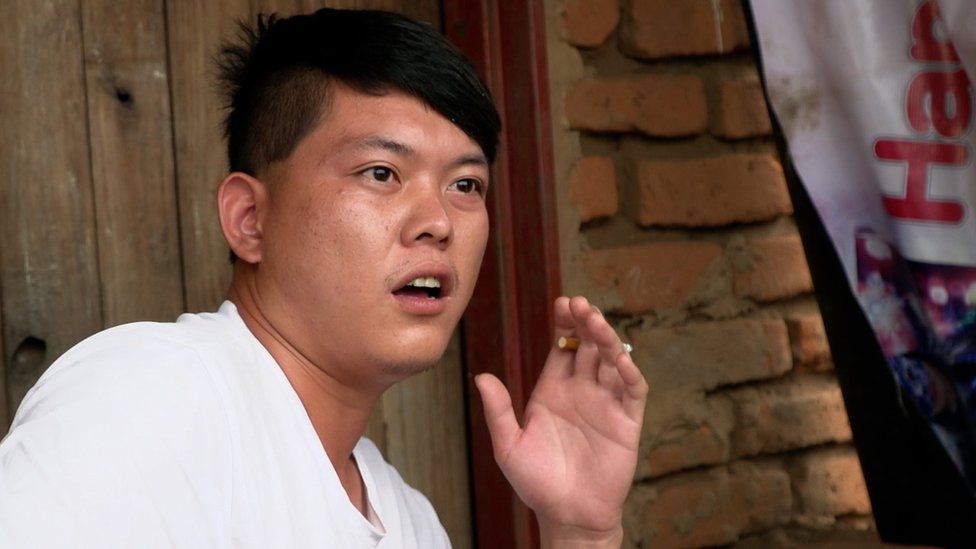
It was Oka who arbitrarily interpreted the meaning of a Chinese word through the “bias” of Japanese, relying on secondhand “half-baked knowledge” from a Buddhist scholar who doesn’t understand Chinese.
History Shouldn’t Be Rewritten by Those Who Lack Respect
People who unconsciously look down on others and see themselves as superior often fail to respect the languages, cultures, histories, and religions of other countries.
They readily twist the meanings of Chinese words to fit their narratives and attempt to link the Buddha to Black people.
Oka’s behavior is strikingly similar to those who fabricate the “legendary Black samurai, Yasuke” narrative. For people like them, foreign languages, history, and religious are nothing more than tools to showcase how morally superior they are.
I wouldn’t call Oka a “small fry,” but I do think she’s just a “person with a title.”
How exactly did she secure a position at the Historiographical Institute The University of Tokyo? It might as well be one of the Seven Wonders of the University of Tokyo.
Criticism of the Global History Community
Oka’s husband, Lúcio de Sousa, proposed like this in 2014.
Existiam também escravos adquiridos por japoneses, os quais não eram para ser exportados, mas para servirem no Japão. Os japoneses, além de fornecerem aos portugueses escravos de origem chinesa, japonesa e coreana, tinham particular interesse em adquirir escravos africanos da região de Moçambique e da região do Malabar. Esta situação é perfeitamente identificável nos biombos nanbam, nos quais vemos inúmeros escravos e criados dos portugueses com fisionomias de diferentes regiões de África, Índia e Sudeste-asiático. Relativamente aos japoneses cristãos que compravam escravos, os jesuítas tinham instruções precisas para não questionarem a legitimidade do cativeiro destes escravos, para poderem continuar a ser favorecidos pelos japoneses 19.
19: BNM, Jesuitas, Legajo 21, fl. 48.
Translation (Using ChatGPT):
Lúcio de Sousa, Escravatura e diáspora Japonesa nos séculos XVI e XVII, NICPRI, 2014, p.220
There were also slaves acquired by Japanese people, not for export but to serve within Japan. In addition to supplying the Portuguese with slaves of Chinese, Japanese, and Korean origin, the Japanese were particularly interested in acquiring African slaves from the Mozambique region and the Malabar coast. This dynamic is clearly depicted in nanban screens, which portray numerous slaves and servants of the Portuguese with features characteristic of different regions of Africa, India, and Southeast Asia. Regarding Japanese Christians who purchased slaves, the Jesuits had specific instructions not to question the legitimacy of these slaves’ captivity, so as to maintain favor with the Japanese.
He later repeated this bizarre theory almost word for word in his 2018 English publication.
The Japanese also acquired many slaves whom they did not intend to export. In addition to providing the Portuguese with Chinese, Japanese, and Korean slaves, the Japanese had a particular interest in acquiring African slaves from Mozambique and Indians from the Malabar region. This is perfectly clear from the nanbam screens, on which numerous slaves and servants of the Portuguese with different African, Indian, and Southeast Asian physiognomies can be seen. In regard to Japanese Christians who bought slaves, the Jesuits had specific instructions to abstain from questioning the legitimacy of such slaves’ captivity, in order to continue being favored by the Japanese.
Lúcio de Sousa, The Portuguese Slave Trade in Early Modern Japan: Merchants, Jesuits, and Japanese, Chinese, and Korean Slaves, Studies in Global Slavery, Vol.7, Brill, 2018, p.272
Dubious theories like this would go unchallenged and uncorrected in the global history community.
This is likely why Oka believes that what she says is always correct, and didn’t expect to face criticism from the general public on social media.
Surrounded by an echo chamber of other global historians and supporters, she seems to have unknowingly become “the empress with no clothes.”
A video below suggests that she would belongs to a community where the people around her readily agree with her.
I couldn’t agree more.
Should Taxpayer Money Fund Such “Research”?
歴史学①
わたしはアカデミズムに興味も知識もない。以下は一国民、納税者としての意見。岡美穂子Mihoko Oka
@mei_gang30266
氏の「一般書」軽視は過去にも批判した。
実学重視の教育改革には必ずしも賛同しないが、氏の言動は歴史学への税金投入をためらわせるものがある。Translation:
I am neither interested in nor knowledgeable about academia, but here’s my opinion as a taxpayer.I’ve criticized before Mihoko Oka’s
https://x.com/tentaQ4/status/1871190461878272443
@mei_gang30266
disregard for general-interest books. While I don’t necessarily agree with education reforms that prioritize practical studies, her words make me question whether public funds should be invested in history research.
I completely agree with this criticism thread of Oka.
Why is it that independent, unpaid individuals like us have to do the hard work of uncovering historical truths about Yasuke? The costs of books, transportation to libraries, and photocopies have added up over time.
But the greatest expense isn’t money. It’s the sheer time and effort needed to decipher the “interpretations” and sources that have been arbitrarily presented by global historians.
Meanwhile, Oka, as an associate professor at Japan’s most prestigious national university, is funded by taxpayer money, yet she uses her position to spread baseless fantasies about Yasuke on social media.
Despite once claiming, “I’m probably the only person on this planet who can assess the correctness of each part of Lockley’s research on Yasuke,” she later said that she hadn’t even read Lockley’s paper.
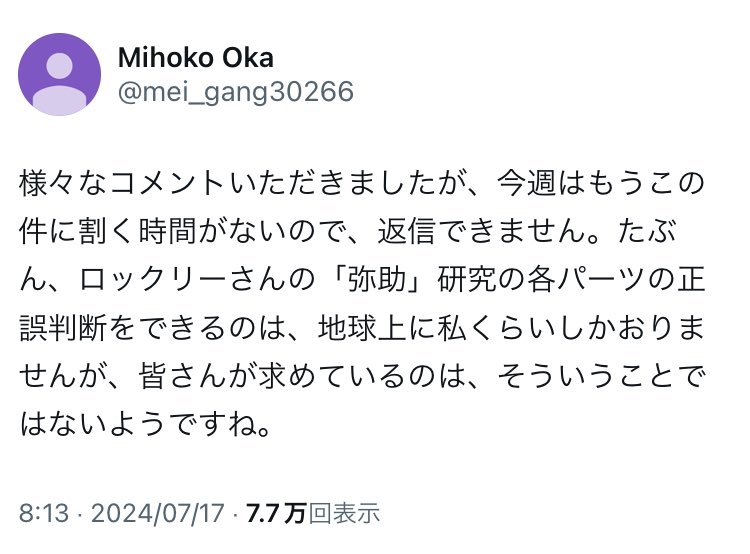
様々なコメントいただきましたが、今週はもうこの件に割く時間がないので、返信できません。たぶん、ロックリーさんの「弥助」研究の各パーツの正誤判断をできるのは、地球上に私くらいしかおりませんが、皆さんが求めているのは、そういうことではないようですね。
Translation:
I’ve received various comments, but I don’t have any more time to spend on this matter this week, so I won’t be able to respond. I’m probably the only person on this planet who can assess the correctness of each part of Lockley’s research on Yasuke, but it seems that’s not what everyone is looking for.
ロックリー論文は読んでませんよ。別に弥助に興味ないし。ポルトガル語版を確認したら、Gary Leuppを引用してました。この点はロックリーさんと同じですね。
Translation:
https://x.com/mei_gang30266/status/1853408085018378270
I haven’t read Lockley’s paper. I’m not particularly interested in Yasuke. When I checked the Portuguese version, I found that Sousa cites Gary Leupp, just like Lockley does.
To make matters worse, Oka and her husband Sousa are promoting their “Black Slaves Trend Theory” on a global scale. Their book has even been translated into Korean.
Spreading delusion is not research.
Should taxpayer money really fund “research” that has the potential to create international controversy?
Disappointment in the University of Tokyo
At the end of last year, I walked through the University of Tokyo, which is close to my home.
上野公園散歩ついでに東大史料編纂所に来ました。
たのもー!!!
Translation:
While walking through Ueno Park, I stopped by the Historiographical Institute The University of Tokyo.Knock, knock!
https://x.com/japanese_naoto/status/1873266444529746160
The last time I visited the University of Tokyo was during their May Festival (their school festival) when I was a freshman at my university, to see a high school friend who was studying there.
I still respect him, and at the time, I was impressed by the university’s solemn and dignified atmosphere.
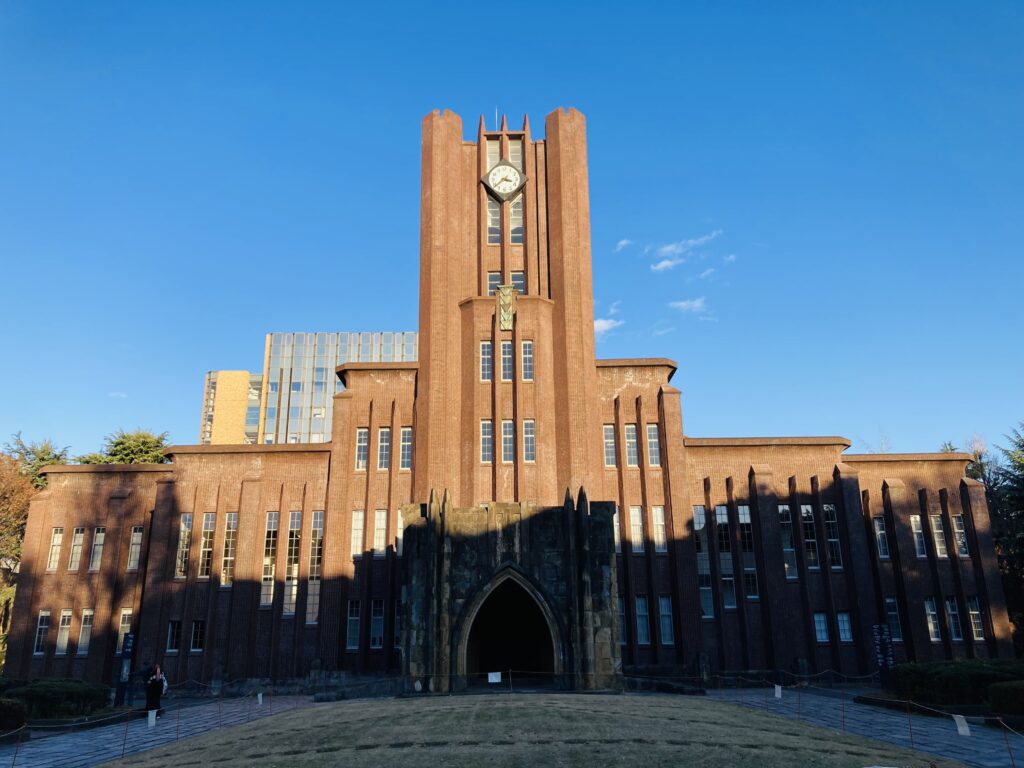
But now, that impression has completely changed.
The University of Tokyo is supposed to be Japan’s top university, that everyone in Japan knows, respects, and holds to the highest expectations.
Historiographical Institute The University of Tokyo, in particular, is a critical institution responsible for preserving and studying Japan’s historical records.
Yet, someone who can’t even defend their claims against amateur criticism, is serving as an associate professor there. While society might accept it, I don’t.
私は歴史研究とは厳密さが求められるものだと思っていました。ですが、先生の史料に対する姿勢や解釈の仕方を見るに、あまり気にしていないようですね。
とりあえず、あまり一般人をがっかりさせないでほしいなと申し上げておきます。Translation:
I always thought historical research demanded rigor, but your approach to sources and interpretation suggests otherwise.At the very least, I hope you won’t let down the general public so often.
In this exchange, Oka finally admitted that their mistaken claim about Yasuke’s age in The Japanese Slaves of the Age of Discovery was due to relying on a secondary source without verifying it although Oka had been insisting all along that it was just a “typographical error.”
そもそも私は「弥助」の研究者ではないし。指摘の部分は全体の分量の100分の1にも満たない箇所で。「器量なり」は研究者によっては、翻刻で「健やかに」との間に読点が入っています。一般書という性格で、「弥助」は付録の一項目に過ぎないので、参照文献の引用史料を見直すほどの手間はかけません
Translation:
I’m not a Yasuke researcher, and the part you pointed out is less than 1/100 of the total content. “器量なり” is punctuated differently by some researchers in their transcriptions. I didn’t take the time to reexamine the referenced sources, since this was a general book and Yasuke was only a small part of the appendix.
An associate professor at the University of Tokyo relying on secondary citations is simply unacceptable.
Why can she take arrogant attitude, like “Yeah, I used secondary citations, so what?” While admitting it is commendable in its own way, but still.
In the global history community (wasteland) secondary citations might be a common practice. However, at Ritsumeikan University’s Japanese History Department, relying on secondary citations results in an automatic failing grade.
自分で確かめていない史料を他人の著作から抜き出してくること(孫引き)は、直ちに落第(F評価)の対象となります。したがって、1回生のうちから他人の見解と自分の見解を厳格に区分して文章を書くことが求められます。
落第評価で草
Translation:
“Using unverified citations from other authors’ works (secondary citations) will result in an automatic failing grade (F). Therefore, from their first year, students are required to strictly distinguish between others’ views and their own conclusions in their writing.”Failing grade, lol
https://x.com/dokushoa/status/1856908304158802034
Is the research coming out of Japan’s top university, funded by a significant amount of taxpayer money, at this failing level?
University of Tokyo—don’t let me down.
I love Avicii’s songs.
